A big challenge for JERA as it seeks to solve the world’s energy issues
2023.6.21
This article is based on a Japanese article produced by Forbes JAPAN BrandVoice, which sponsored and translated by JERA.
JERA is a fuel procurement and thermal power generation company founded in 2015 as a 50:50 joint venture by Tokyo Electric Power Company and Chubu Electric Power Company.
Although JERA is Japan's largest power provider, a massive company with assets exceeding 10 trillion yen that accounts for approximately 30% of Japan's total power generation, JERA Executive Vice President Kazuo Sakairi calls it a "hulking start-up.”
What does he mean by that? What kind of corporate culture does JERA have? In our interview with Mr. Sakairi below, we try to get at the hidden essence of JERA.
INDEX
The drive to establish JERA was born from a sense of crisis among executives in their 40s
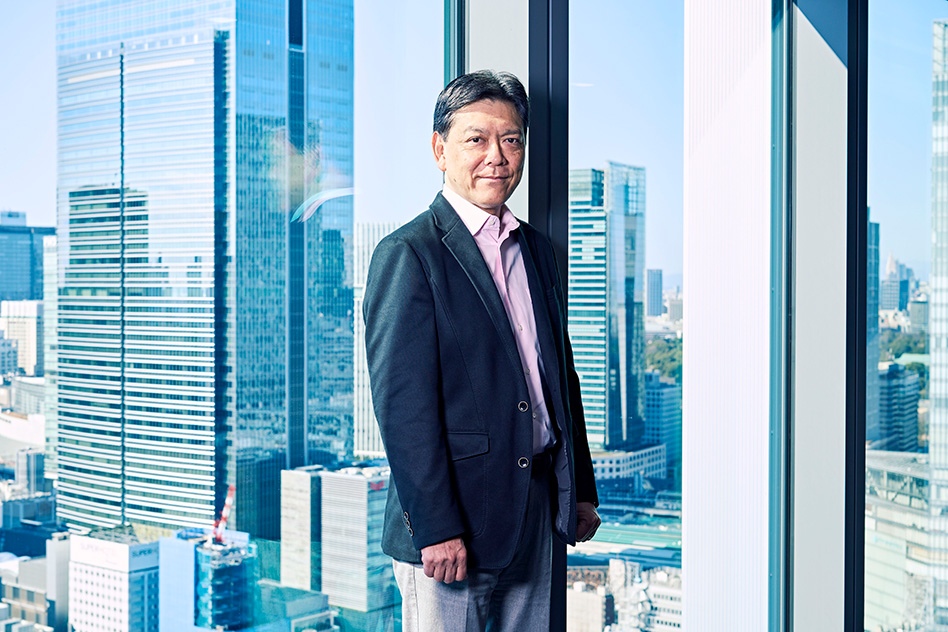
Generally speaking, the bigger an organization is, and the greater the impact of its business on society, the more resistant it will be to change. This is especially true for companies that uphold the foundations of society. By their very nature, such companies must be conservative in their business practices.
In this sense however, JERA—a massive company that owns and operates a long value chain stretching from upstream fuel development and procurement to transportation, trading, receiving, and power generation and is responsible for approximately 30% of Japan's power generation—clearly stands alone.
The reason is JERA’s origins as a joint venture established by Tokyo Electric Power Company (TEPCO) and Chubu Electric Power Company (Chubu) in the wake of the catastrophic Great East Japan Earthquake.
As JERA Executive Vice President Kazuo Sakairi explains, “Electric companies have many talented people, but their long history in a regulated industry responsible for the stable supply of electricity, combined with negative aspects of the seniority and lifetime employment systems, has definitely resulted in a tendency toward stability—a fear of failure and an aversion to taking on big challenges. There were people at Chubu and TEPCO who questioned this trend, however, and the Fukushima Daiichi Nuclear Power Plant disaster in March 2011 brought them to the forefront.”
Upper management changed completely amid TEPCO's greatest crisis, and new executives in their 40s who were deeply concerned joined the debate about how to revive TEPCO.
At the time, I was also in my 40s. I worked at an independent M&A firm and took part in the discussions as an advisor. In 2019, after substantial assets of the two companies had been integrated and my work as an advisor was finished (or so I thought), I was very surprised to be asked if I wanted to work together going forward to help JERA grow. (Sakairi)
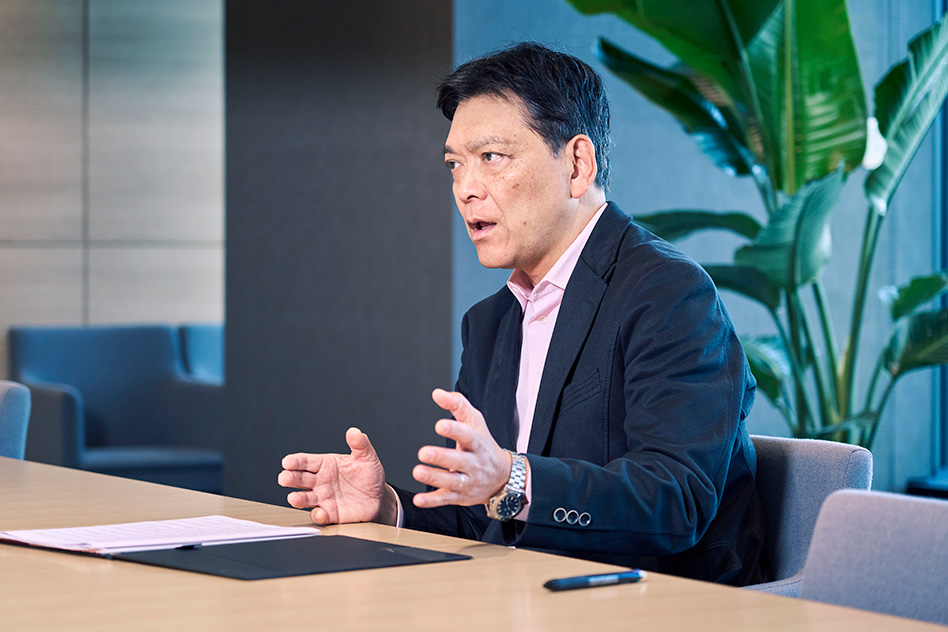
Although Sakairi was offered the role of Chief Financial Officer (CFO), JERA's top management also had other hopes. They said they wanted to leverage his experience observing the management and governance of various companies as an M&A advisor in Tokyo and New York, and working as an equal with diverse counterparts to increase enterprise value, to promote JERA’s growth. Sakairi understood that they wanted his outside perspective to help transform the organization.
I was 55 when I joined the company, about the same age as other executives with the exception of the current chairman and president. There was room to discuss things freely, to bounce ideas around. Not everyone came from an electricity industry background, and they genuinely welcomed people from the outside. I could tell they were serious. (Sakairi)
The other members of the board of directors were diverse, too. That there were multiple non-Japanese outside members was unusual for an electric power company.
There were members of the board of directors who had top management experience at power and trading companies in France and the United States, and one who was invited to join the Biden administration’s Department of Energy last year. That JERA’s executives were going out of their way to create an environment that would draw in knowledge and experience from outside Japan impressed upon me how serious they were about competing globally.
Sakairi was also captivated, of course, by the magnitude of the business’s potential social impact. Amid the move toward decarbonization, how to reduce CO2 while maintaining a stable supply of electricity? He was convinced that JERA was the only company in Japan capable of leading this effort.
It would be my first time working for such a big corporation and a big risk. Age-wise I knew it could be my last career move, and I wasn’t sure how much I had in me. Nevertheless, I decided to join JERA because I felt it was worth the risk, that it was a company where it would be possible to take chances. (Sakairi)
Although the scale of JERA’s organization and business was huge from the beginning, Sakairi notes that being a new company born out of a sense of crisis gives it unique strengths.
Although JERA is a massive company with total assets exceeding 10 trillion yen, at the same time it is also a “hulking start-up.” Instead of leaving things to others, executives quickly make their own decisions. If we don’t constantly innovate in our industry, the world will quickly leave us behind. We need to make big decisions in a short amount of time. Our executives all recognize that and are committed to doing so as we move our business forward. (Sakairi)
An organization that stifles opinion will never change
Although JERA is a new company, inheriting parts of the business of two electric power companies means it has no choice but to follow traditional Japanese organizational culture.
Japanese electric power companies used to be a monoculture: hierarchical and male. Moreover, there was very little mid-career hiring and almost no foreign employees. Change begins at home, so in the Finance and Accounting Department, which I oversee, we have been proactive in hiring mid-career and female employees such that of our current 152 employees, only 45—a minority— come from the electric power industry and more than 30 are female. Looking at the head office as a whole, nearly a third of all employees were mid-career hires. (Sakairi)
JERA is also actively utilizing talented outside professionals from a variety of industries such as M&A, Finance, IR, and ESG. This workplace diversity has even begun to change—if gradually—the way employees who came from the electric power industry behave.
I feel that more and more people sense that they, too, must change by broadening their horizons and trying new things. But that doesn’t necessarily make it good to replace everything with something new. We can’t make mistakes in accounting and financial operations and need to follow electricity business accounting rules. Ideally, we can move forward in changing mindsets while also protecting what needs to be protected. (Sakairi)
If JERA really wants to become a company that can compete globally, it will also need to set about reforming its systems and organizational culture without being bound to conventional seniority and lifetime employment practices.
Our company has 26 power plants, and some of the workers at those plants are hired locally, and it’s fine to leave the systems that fit such workers as they are. For the corporate and business divisions, we have an opportunity to introduce different systems, or to provide options that employees can choose from. I feel it’s important to bring diversity to our personnel systems and our ways of working, and I’m pushing this internally. (Sakairi)
Some people are confused by change. Some people may recognize that they need to change themselves but struggle to do so. Other employees with long years of experience in the industry may feel that what they have built up over time is being rejected.
Some people look at how I do things and say, “You don’t understand the power business, do you, Mr. Sakairi?” That’s fine. I welcome that assessment. It means we’ve reached the point where we’re pitting ideas against each other as we think about what JERA should create. (Sakairi)
Sakairi says he wants to avoid becoming the kind of organization where instead of discussing things, people just say, “Well, my boss said it, so I’ll just let it go even if it might not be correct. Best to just do as I’m told regardless of how I feel about it.” People have different ways of seeing things and it is not always easy to decide which way is best. This, he says, is why it is so important to have people who bring the experience of their previous positions, and to create a healthy environment where everyone can express their opinions freely.
In the beginning I was treated a bit like an outsider. It’s true that the more monocultural a company is, the more likely it is that this will happen. That was no reason for me to hold back, though. What I’m trying to create is a truly flat organization that transcends the barriers of where you used to work or how long you’ve been at the company. (Sakairi)

Sakairi with team members. He seeks to create a truly flat organization that transcends the barriers of where someone used to work or how long they have been at the company.
Sakairi has no intention, however, of forcibly bringing together the diverse opinions that emerge in a flat organization. He says that would just mean going back to business as usual.
We’re trying to spread diversity in an organization that used to be a monoculture, so trying to put everyone on the same page would just mean creating a new monoculture. We need to retain the diversity. If the prevailing mood is that “it would be better not to say this” or “this isn’t in line with management’s intention, so let’s not put it out there,” there’s a risk that management will make decisions based on incorrect information. Proper decision-making means management choosing from among a variety of opinions. (Sakairi)
From a monocultural organization to one that can compete globally
Only by shedding its organizational monoculture, Sakairi says, can JERA secure the foundation to compete globally. Different countries have different ways of thinking and feeling about business, so you can only get so far if you try to discuss things more deeply only among monocultural Japanese employees. The opinions of people with diverse ideas and values are important.
JERA has a system of Global Advisory Experts that brings in information about the state of the world in a variety of fields, and wide-ranging advice grounded in such information, from oversesas businesspeople and consultants. First we have discussions within the department and exchange opinions with the management team, and then we ask these experts what they think. I am confident that the opinions we receive from other countries' perspectives are often ones that Japanese managers and employees alone would never have come up with. (Sakairi)
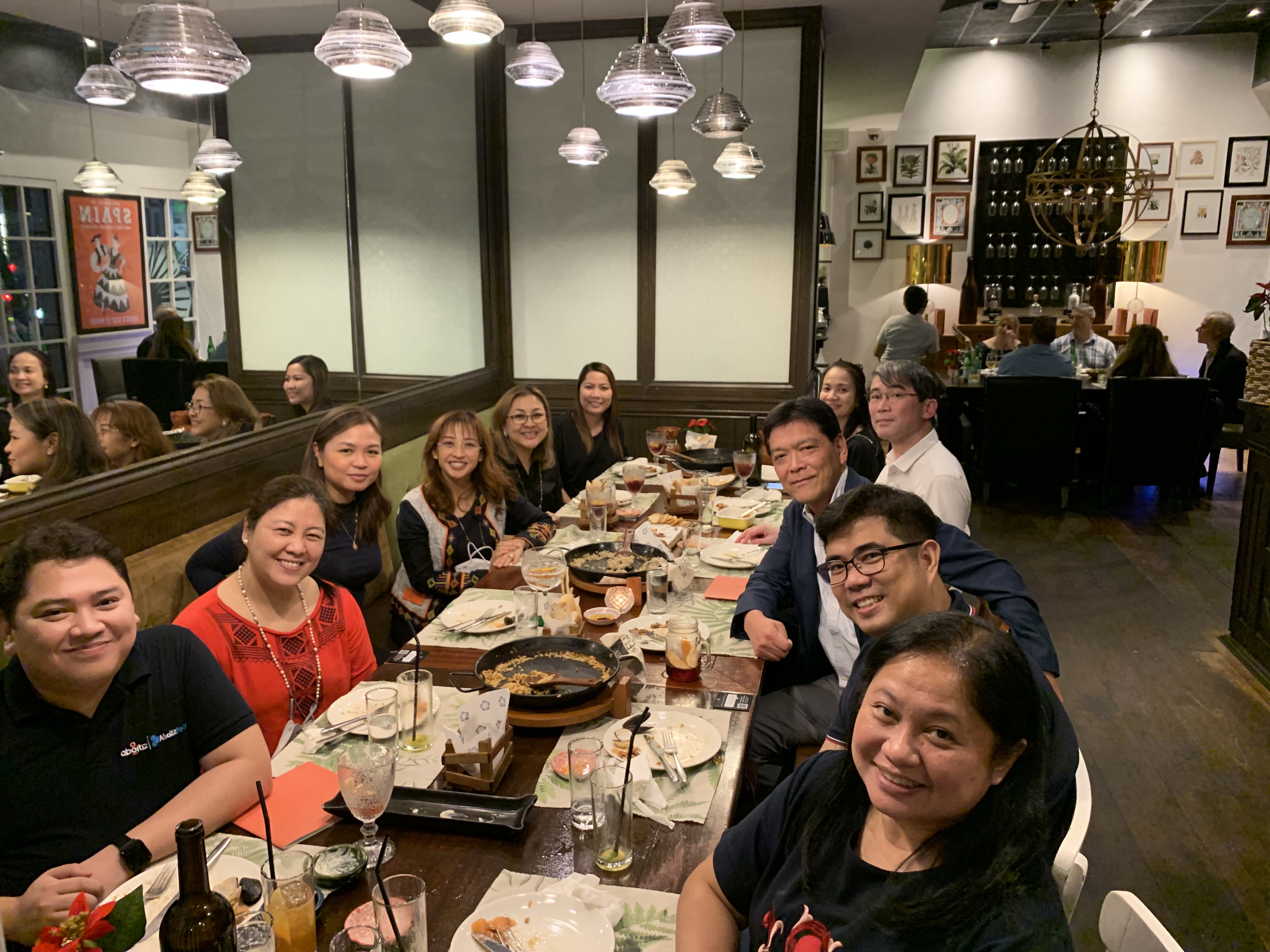
A photograph from a dinner with the CFO of Aboitiz Power, a major electric power company in the Philippines, and his team in 2022. With so many female team members, the diversity is evident.
Diversity is essential to realizing JERA’s mission of "providing cutting-edge solutions to the world's energy issues.” Sakairi's role, however, is to build JERA into a company that can really achieve this mission, not to achieve diversity for diversity’s sake.
How close can we get to achieving our mission? I think my reason for being here is think about this and then act accordingly. The bottom line is to not hold back much, to avoid creating restraints or “sacred ground” that conflict with global standards, and to do whatever it takes. (Sakairi)
It might be five or ten years before the mission JERA is pursuing actually takes tangible form. In order to make decisions that set the direction for the project over the long term, it is essential to have discussions that transcend the generations.
Because this is a long-term project, I think we have to ask whether decisions should really be made only by managers in their 50s or older, and evaluate whether those decisions are correct or not by considering the opinions of diverse people of different generations, genders, and nationalities, and then come up with mechanisms to ensure that such people's opinions are properly incorporated into management decisions. I want everyone who joins JERA to feel that they themselves play a part in leading the company. The message I want to rely is, “Think of JERA as a ship, come on board, and join us on our challenging journey!” (Sakairi)
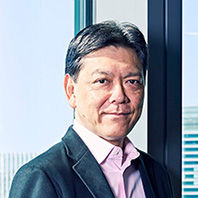
Kazuo Sakairi
Kazuo Sakairi joined the Bank of Tokyo in 1987, served as deputy general manager of its Financial Development (M&A) Department from 1994, and as vice president of the Bank of Tokyo Trust Company (New York) from 1995. In November 2002 he became head of the M&A Team in the Financial Development Division at Mitsubishi Securities (now Mitsubishi UFJ Morgan Stanley Securities). In June 2006 he became senior director at GCA Corporation, and in January 2015 executive officer and managing director for the Asia region at GCA Savvian Corporation.
He was appointed director, managing executive officer, and CFO at JERA in April 2019, and since April 2022 has served as director, corporate vice president, and CFO.
RELATED STORIES

What is JERA’s fuel ammonia initiative, part of its grand plan to eliminate CO2 emissions?
This article is based on a Japanese article produced by Forbes JAPAN BrandVoice, which sponsored and translated by JERA.

How Mid-Career Hires and Transplants from TEPCO and Chubu Electric Power Are Shaping JERA's Flat Organizational Structure
As Japan's largest power generation company, JERA operates businesses throughout the entire energy supply chain …
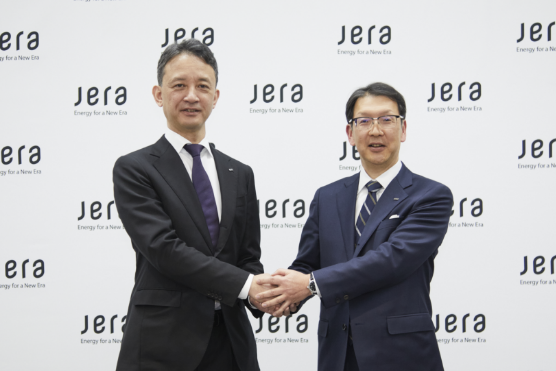
JERA establishes a New Management Structure. Taking on the Challenge of Solving the World's Energy Issues
On February 22, 2023, a new management structure effective April 1 was announced at JERA's headquarters.

